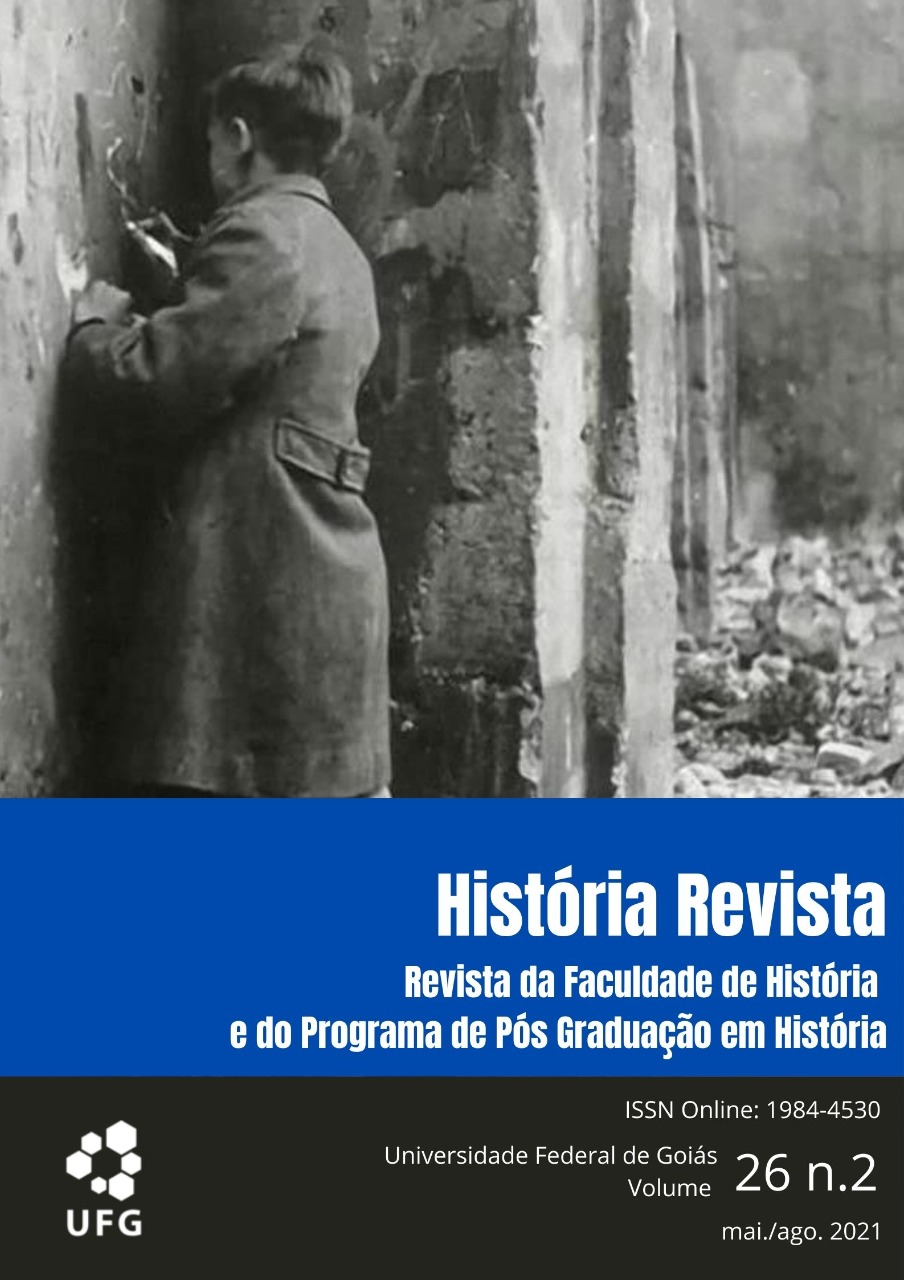Rememorando traumas e memórias esquecidas da derrota politica
representações da Revolução Francesa de 1848 em O Cisne de Baudelaire.
DOI :
https://doi.org/10.5216/hr.v26i2.68281Résumé
Os episódios sangrentos de 1848 são uma ferida aberta na história francesa. Como todo evento com ares de guerra civil, é extremamente difícil lidar com o assunto. Daí podermos pensar no grande recalque que silencia esse episódio revolucionário. Na sequência imediata ao fato, livros e publicações foram proibidos de comentar os assassinatos. Mas pior do que esse tipo de censura é a autocensura e o seu lento processo de esquecimento coletivo. Entenderemos que é a revolução e seu triste desdobramento o tema central de O Cisne de Baudelaire. Neste poema é possível acompanhar as opções estéticas do poeta que fiel à tradição latina sabe também apreender a mais áspera modernidade. O Cisne é uma meditação alegórica sobre Virgílio e Andrômaca a propósito das transformações de Paris e das degradações da condição humana nas zonas suburbanas. A referência à Antiguidade justifica o papel desse poema como paradigma da oposição entre época antiga e época moderna e dota assim o conjunto de uma tensão insolúvel que pode ser a sua significação profunda.
Téléchargements
Références
BARBOSA, João Alexandre. As Ilusões da Modernidade. São Paulo: Perspectiva, 1986.
BAUDELAIRE, Charles. As Flores do Mal. Rio de Janeiro: Nova Fronteira, 1985.
BAUDELAIRE, Charles. A modernidade de Baudelaire. Rio de Janeiro: Paz e Terra, 1988.
BENEVOLO, Leonardo. História da arquitetura moderna. São Paulo: Perspectiva, 1976.
BENJAMIN, Walter. Charles Baudelaire: um lírico no auge do capitalismo. 3. ed. Obras escolhidas. v. III. São Paulo: Brasiliense, 1994.
BLOOM, Harold. Os 100 autores mais criativos da história da literatura. Rio de Janeiro: Objetiva, 2003, p. 488.
CARPEAUX, Otto Maria. História da Literatura Ocidental. Vol. V. Rio de Janeiro. Edições O Cruzeiro, 1959.
JUnqueira, Ivan. A Arte de Baudelaire. In: Baudelaire, Charles. As Flores do Mal. Rio de Janeiro: Nova Fronteira, 1985.
JUNQUEIRA, Ivan. Baudelaire, Eliot, Dylan Thomas: três visões da modernidade. Rio de Janeiro: Record, 2000.
KOTHE, Flávio René. Walter Benjamin. Sociologia. São Paulo: Ática, 1991.
MAROUCK, Victor. Junho de 1848. Paris: Spartacus, 1998.
OEHLER, Dolf. Art Névrose: análise sócio-psicologica do fracasso da revolução em Flaubert e Baudelaire. Novos Estudos CEBRAP. São Paulo, 1992, n. 32, p. 105-106.
OEHLER, Dolf. O Velho Mundo Desce aos Infernos: auto-análise da modernidade após o trauma de julho de 1848 em Paris. São Paulo: Companhia das Letas, 1999.
OEHLER, Dolf. Quadros Parisienses (1830-1848). Estética antibusguesa em Baudelaire, Daumier e Heine. São Paulo: Companhia das Letas, 1997.
ROUANET, Sérgio Paulo. As razões do iluminismo. São Paulo: Companhia das Letras, 1987.
SARTRE, Jean-Paul. Baudelaire. Buenos Aires: Losada, 1949.
TROYAT, Henri. Baudelaire. São Paulo: Scritta, 1995.
Téléchargements
Publié-e
Comment citer
Numéro
Rubrique
Licence
Declaração de Direito Autoral
Concedo à História Revista o direito de primeira publicação da versão revisada do meu artigo, licenciado sob a Licença Creative Commons Attribution, que permite o compartilhamento do trabalho com reconhecimento da autoria e publicação inicial nesta revista.
Afirmo ainda que meu artigo não está sendo submetido a outra publicação e não foi publicado na íntegra em outro periódico, assumindo total responsabilidade por sua originalidade, podendo incidir sobre mim eventuais encargos decorrentes de reivindicação, por parte de terceiros, em relação à autoria do mesmo.



